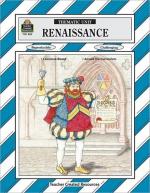|
This section contains 7,249 words (approx. 25 pages at 300 words per page) |

|
Terminology.
The term scholasticism, a word invented by sixteenth-century humanist critics, has long been used to describe the dominant intellectual movement of the Middle Ages. The humanists used the term to attack the verbose style and arid intellectualism they perceived to be the defining features of medieval intellectuals. Humanists criticized the scholastics for concentrating on legal, logical, and rationalistic issues at the expense of genuine moral and ethical problems. In truth, the thought of the schoolmen possessed considerable variety and depth. These thinkers often engaged in debating complex moral and intellectual issues in ways that were far from arid and which dealt with realistic considerations. There was not, moreover, a single set of assumptions about philosophical issues within the scholastic movement. Instead it possessed great variety and witnessed continued vitality and development throughout the later Middle Ages. But...
|
This section contains 7,249 words (approx. 25 pages at 300 words per page) |

|




